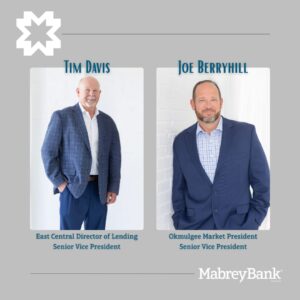Credit scores – we all have one, but everyone may not know their score or how important it can be. Did you know that your credit score could impact your ability to secure certain jobs, open a new credit card or receive a lower interest rate on your next home or vehicle?
We want to help with a basic 101 course on your credit score, including how it’s calculated, what it means and the steps you can take to improve it.
What is a credit score?
A credit score is a three-digit number which is a result of a mathematical formula that estimates how likely you are to pay your debt back on time. It can range anywhere from 300 to 850. It’s calculated through several factors: your credit payment history, the amount of available credit you are using, the number of credit accounts in your name and your overall mix of credit.
It’s actually a common misconception that everyone has just one single score. Your score could vary based on the reporting agency providing the score (Equifax, TransUnion or Experian) or industry in which you are looking to lend from (automotive, mortgage, etc.). While an exact score is nice to know, it’s more important to know what range your score falls in.
- 300-579: Poor
- 580-669: Fair
- 670-739: Good
- 740-799: Very Good
- 800-850: Excellent
It’s also good to know what is not factored into your score. Any personal demographics are not considered such as age, race, religion or marital status. Nor is your income or employment status and its history. While lenders will likely look at this information, you won’t need to worry about any of those impacting the score itself.
Why is a good credit score important?
We asked this very question to Thom Meyer, Mabrey Bank’s Chief Underwriting Officer, who is a loan and credit expert with over 30 years of banking experience.
“There are several reasons that a good credit score is very important,” said Meyer. “Anytime you want to borrow money, whether it be for a car, a house or any other reason, the person making the loan decision is going to rely heavily on how you have handled your fiscal responsibilities in the past. This is detailed on your credit report and generates your credit score. Also, many lenders have adopted ‘risk-based pricing’ which means the higher your credit score, the better the interest rate you will receive on your loan if it is approved. Credit scores are checked for other reasons, such as by landlords for potential renters and by insurance companies to calculate premiums and determine coverage. Employers often check credit scores in making hiring decisions.”
So, it’s simple. A better credit score saves you money and gives you access to more and better loan options.
One final item of note is that credit card rewards may also be more valuable with a better credit score. Exclusive cards that reward purchases with mileage, points or cash back are typically only available to those with good to excellent credit scores.
Where can I find my credit score?
While you can secure a free annual credit reports from all three national credit reporting agencies, Experian, TransUnion and Equifax, these reports do not usually contain credit scores. If you have a credit card, your credit score is often available through your card issuer’s mobile app or online account. That score will update based on the activity of your card.
Experian will allow you sign up and view your FICO score for free. While this is just one methodology to calculate a credit score, it can at least give you an idea of which range you fall into. FICO scores are used often by lenders and credit card companies.
How can I improve my score?
It’s important to note that every credit score is different. Because a variety of factors play into your score, there isn’t a one-size-fits-all method of improvement. Understanding your score, and why it is what it is, will give you some specific clues for how you can improve it. With that said, here are three general habits that, if stuck to over time, should lead to a solid score.
- Make debt payments on time – The most important credit score factor is your debt payment history. According to Experian, this factor alone accounts for 35% of your FICO Score.
- Pay down revolving account balances – How much reoccurring debt you have at a given time, such as credit card balances, is another large factor in your credit score (30% of your FICO score). If you have high balances that aren’t easily paid off, consider a debt consolidation loan or a debt repayment strategy to lower that sum.
- Keep your oldest credit accounts active – The longer your credit history, the better your credit score. Your oldest credit account heavily influences this portion of your credit score, 15% of your FICO score. Closing a long-running credit card, for instance can do negative damage to your score.
That is a wrap on Credit Score 101. You can now put away notebooks and pack up your bags.
For any questions or for more information stop by a Mabrey Bank location and speak to one of our expert bankers in person. Or you can give our in-house customer service team a call at (888) 272-8866.
 OKMULGEE, Okla. – Mabrey Bank is proud to announce two internal promotions that further solidify the bank’s footprint in Okmulgee and the surrounding communities of East Central Oklahoma.
OKMULGEE, Okla. – Mabrey Bank is proud to announce two internal promotions that further solidify the bank’s footprint in Okmulgee and the surrounding communities of East Central Oklahoma.

